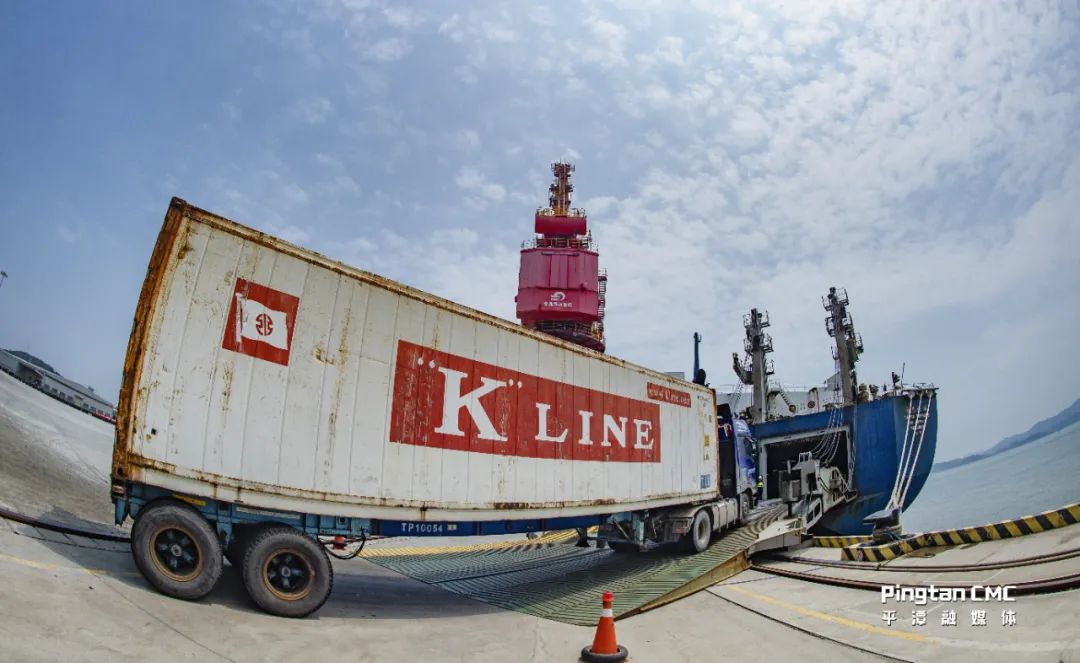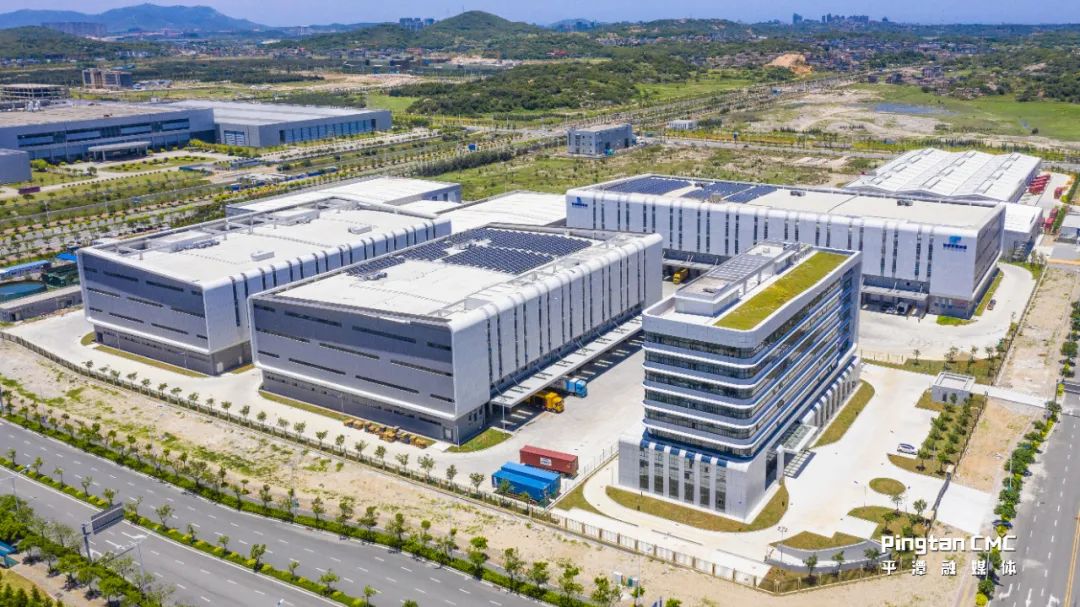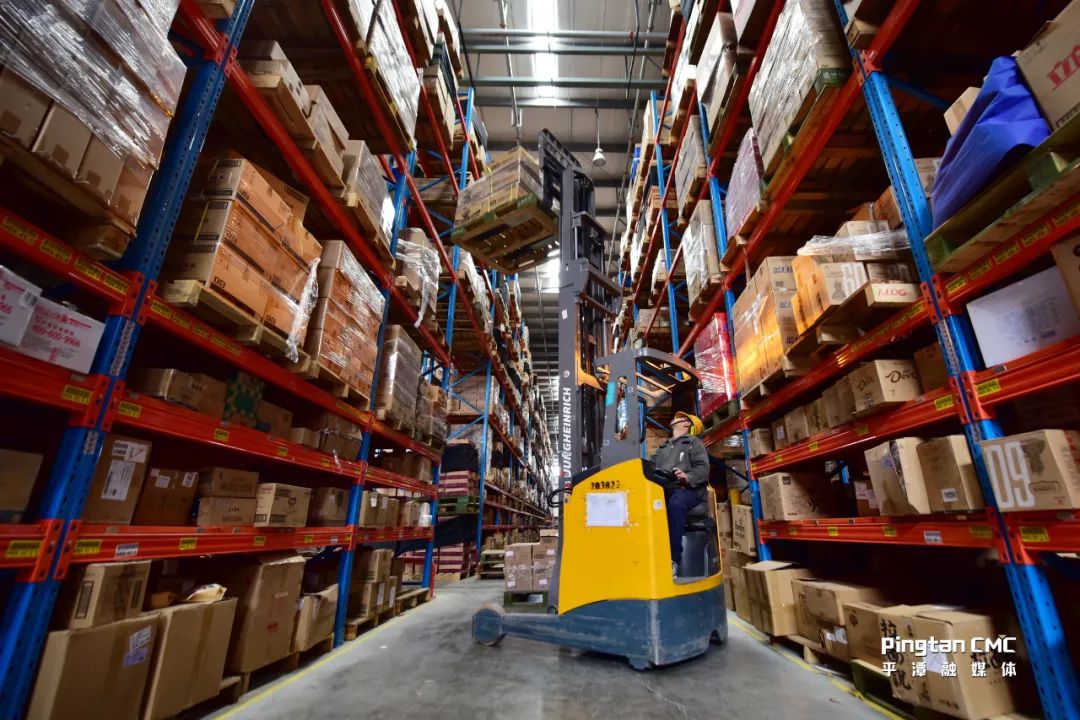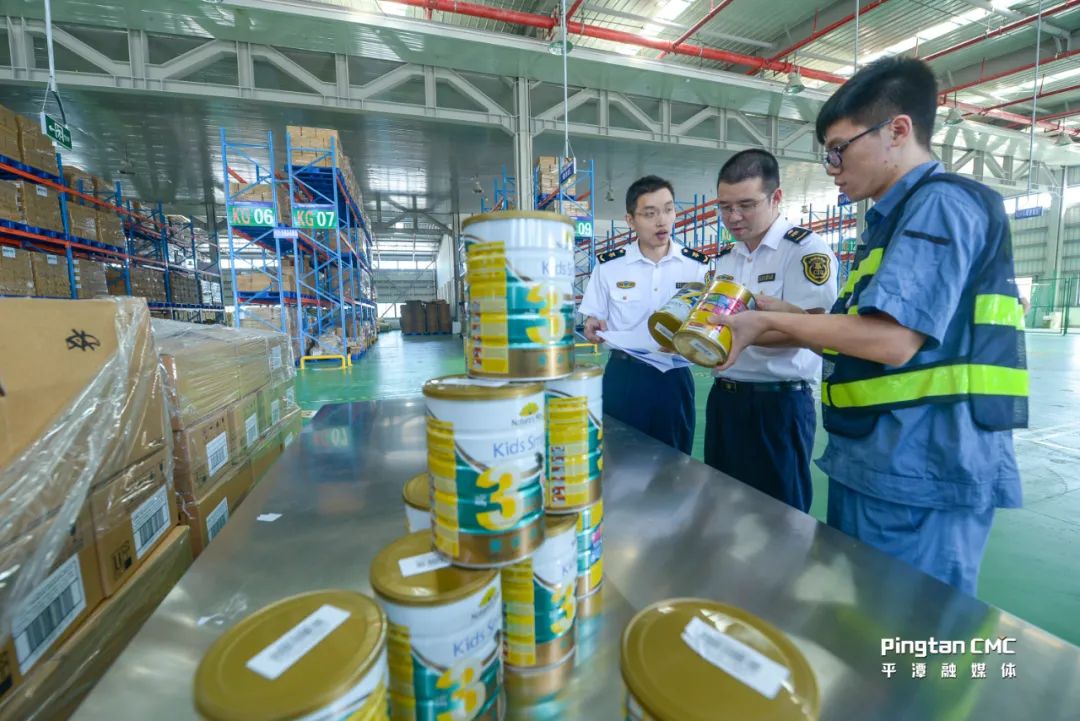CPPCC adviser proposes building a cross-Straits logistics distribution center in Pingtan
en.ptnet.cn | Updated:2022-03-14 | Lin Kongbo StephanieAt the fifth session of the 13th National Committee of the Chinese People's Political Consultative Conference held in Beijing, Wu Zhiming, a member of the National Committee of the Chinese People's Political Consultative Conference and chairman of Fujian Provincial Committee of China National Democratic Construction Association, proposed that Pingtan Island ramp up cross-Straits integration by harnessing its competitive edge as a comprehensive pilot zone and the Regional Comprehensive Economic Partnership (RCEP).

According to reports, Pingtan is the closest place on the Chinese mainland to the island of Taiwan and a new national first-class port. The RCEP has improved trade liberalization and investment facilitation among its members and created historic opportunities for development in the region. Under the nation's "Dual Circulation" economic strategy, the domestic economic cycle plays a leading role while the international economic cycle remains its extension and supplement. Efforts should be made to make the best possible use of RCEP rules, build cross-Straits logistics distribution centers, and expand "inland-Pingtan-Taiwan" two-way sea-rail-air transportation. It is of great significance to promote Pingtan to build a demonstration area for cross-Straits integration.

However, Wu also pointed out several bottlenecks that hinder Pingtan's endeavor to build a cross-Straits logistics distribution center: first, except for the routes to Taiwan, there are no routes to Japan, South Korea, or Southeast Asia; second, the port throughput is inadequate. Although its cross-border e-commerce business is making a good start, the throughput is difficult to shore up route operations; third, the intermodal service network is not complete. There are many intermediate links, and freight costs do not have a comparative advantage. Transportation value-added services and brand competitiveness are weak; fourth, there is a shortage of business concerning Pingtan’s entrepot trade via Taiwan. And the same goes for research and policies to support the construction of an international port. Hereto, Wu put forward five proposals.

First, create a new customs supervision model. Wu called on the central authorities to endow Pingtan with an RCEP pilot zone and offshore duty-free policies, clarify the positioning of Pingtan as a special customs supervision zone, implement the establishment plan that is more "special" than the other special customs supervision zones, and give full play to "line-division management" innovated by Pingtan, and explore the construction of a free trade port; establish a free and open shipping system, relax restrictions on airspace and route rights, open more flights, and strengthen transportation between the inland and Pingtan as a free trade port; support Pingtan to carry out registration for international ships. And domestically built ships registered in Pingtan and engaged in international transportation will be granted export tax rebates.

Second, promote the industrial connection across the Straits. Upgrade the Pingtan Cross-Straits Inspection and Quarantine Data Exchange Center to the Cross-Straits Economic and Trade Data Exchange Center to realize the connectivity of cross-Straits commodity inspection standards; support the import of equipment from Taiwan for self-use by Taiwan-funded enterprises that provide medical, beauty, and elderly care services in Pingtan, provide tax exemptions or bonded management, and set no import quota or license management; exert the advantages of the special policies from Pingtan's status as an international tourism island, a comprehensive pilot zone, and a pilot free trade zone to expand the export channels for Taiwan products to RCEP member countries via Pingtan, and redirect the production chain of Taiwan's premium agricultural products, Chinese medicinal materials, precision machinery, and beauty products to the mainland; tap into the enormous market and abundant raw materials on the mainland as well as Taiwan's high technology to lead the world in innovation and accelerate the cultivation of Pingtan's strategic emerging industry clusters.

Third, support the construction of cross-border e-commerce. It is recommended that government departments pertaining to customs, taxation, finance, and commerce step up their support for the development of cross-border e-commerce in Pingtan, and promulgate measures to encourage the development of cross-border e-commerce retail imports and exports in local cross-border e-commerce customs supervision areas; support Pingtan's application of the pilot retail medicine import program of national cross-border e-commerce; encourage world-famous brands to import through cross-border e-commerce bonded imports, to achieve differentiated expansion of imported categories, and to cultivate a collection and distribution center in the RCEP pilot area; inclined policies regarding finance and taxation should be enacted to support the warehouse building, opening a “Green Channel”; Financial institutions are encouraged to increase credit support for overseas warehouse-building companies; support companies to actively build high-quality overseas warehouses in countries along the RCEP route; promote the integration of cross-border e-commerce industry chain resources, build a government-enterprise peer-to-peer dialogue mechanism, and establish a platform for sharing cross-border e-commerce logistics information for RCEP regions.

Fourth, speed up the connection of logistics facilities. It is suggested that the transportation authorities open more direct passenger and cargo routes between the two sides of the Taiwan Straits according to the market demand; propel the preliminary work of the Beijing-Taiwan high-speed tunnel project; increase flight, cruise ship, and ro-ro freighter routes from Fuzhou Changle International Airport and Pingtan to Taiwan; proceed with the application of the construction of a national cold chain base or a national commercial and trade logistics hub city; guide local private enterprises to improve the capability of shipping business to Taiwan and increase the shipping capacity of Pingtan-Taiwan; support Pingtan in building a "cross-Straits" maritime supply base, borrow Zhoushan's practice and delegate the right to license bonded bunkering for ships on international voyages.
Fifth, build a new sea-air transport channel of "Global-Taiwan-Pingtan-Mainland". Support Pingtan to set up Fuzhou Airport City Terminal; explore and promote access to China-Europe and Central Asia international freight trains; build a maritime logistics express service network, and promote export goods, cross-border e-commerce commodities, postal parcels, and express mails from neighboring provinces and cities to transfer to Fuzhou, Pingtan, Quanzhou, Xiamen, Taipei, Kaohsiung, Hong Kong, Macau and other ports via “Sea Bus” express ships to enhance the development of transit trade; hold on to RCEP's trade expansion with Japan and South Korea, and enact policies to add trading routes between Japan and South Korean and Pingtan.
Wu Zhiming proposed Pingtan be endowed with offshore duty-free policies.
As for the subject on "How to promote the integrated development of the two sides of the Taiwan Straits and build an urban economic circle across the Taiwan Straits," Wu Zhiming brought two proposals at the two sessions this year, one of which is to give Pingtan offshore duty-free policies.

For a long time, the CPC Central Committee and the State Council have attached great importance to the development of Pingtan. Accelerating the construction of Pingtan's "cross-Straits common homeland" and "international tourism island" is the original aspiration and mission entrusted by the CPC Central Committee to Pingtan. The offshore duty-free policies will help Pingtan achieve its goals. At present, the offshore duty-free policy has become the necessity of international tourist islands, and it has been implemented in many countries around the world. Pingtan is surrounded by the sea and faces Taiwan across the sea. It enjoys geographical advantages and has the pre-requisites for carrying out the policy. In addition, Pingtan has the hardware equipment and customs supervisions facilities to carry out the offshore duty-free policy.
Spotted a mistake or want to add something? All rights reserved. Do not reproduce our content without permission–you can contact us directly on our Facebook messenger or Twitter mailbox. Follow @pingtanchina (Facebook/Twitter)

 Fujian Public Security Registration Code: 35012802000271
Fujian Public Security Registration Code: 35012802000271